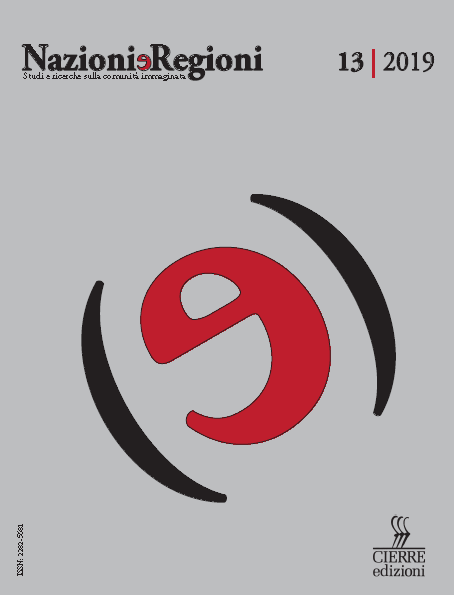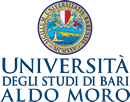La riconciliazione in società profondamente divise: lezioni sudafricane per l’Irlanda del Nord?<br><br>Reconciliation in deeply divided societies: South African lessons for Northern Ireland?
DOI:
https://doi.org/10.15162/2282-5681/1686Parole chiave:
Riconciliazione, società divise, conflitti, Sudafrica, Irlanda del Nord, reconciliation, divided societies, conflicts, South Africa, Northern IrelandAbstract
Una notevole differenza tra il Sudafrica e l’Irlanda del Nord, a partire rispettivamente dalla transizione verso la democrazia e dall’Accordo del Venerdì Santo, è rappresentata dal modo in cui le recriminazioni sui passati atti di violenza hanno dominato il discorso pubblico in Irlanda del Nord, pur essendo relativamente assenti da quello sudafricano. L’articolo esamina il ruolo giocato dalla Commissione per la Verità e la Riconciliazione sudafricana per ottenere questo risultato, pur sostenendo che le ragioni della differenza tra questi due casi vanno oltre i meccanismi che le due società hanno adottato, o non hanno adottato, per affrontare l’eredità del passato. Le lezioni che potrebbero essere tratte dall’analisi dei due casi vengono anche considerate alla luce della diversa natura dei due sistemi politici e delle loro principali linee di frattura.
A striking contrast between South Africa and Northern Ireland since the transition to democracy and the Good Friday Agreement respectively has been the extent to which recriminations about past acts of violence have dominated discourse in Northern Ireland while being relatively absent in South Africa. The paper examines the contribution of the South African Truth and Reconciliation Commission to this outcome, but argues that the reasons for the difference go beyond the mechanisms the two societies have adopted or failed to adopt for addressing legacies of the past. The lessons that might be drawn from the two cases are also considered in the context both of the different nature of the political settlements in the two societies and the basis of their principal cleavages.
Riferimenti bibliografici
Asmal K. – Asmal L.– Roberts R. S. (1996), Reconciliation through Truth: A Reckoning with Apartheid’s Criminal Governance, David Philip, Cape Town-Johannesburg.
Asmal K. (2011), Politics in My Blood: A Memoir, Jacana Media, Auckland Park.
Bloomfield K. (1998), We Will Remember Them, The Stationery Office Northern Ireland, Belfast.
Boraine A. – Levy J. (eds.) (1995), The Healing of a Nation?, Justice in Transition, Cape Town.
Cronje F. (ed.) (2019), South Africa Survey 2019, Institute of Race Relations, Johannesburg.
Gibson J. L. (2004), Overcoming Apartheid: Can Truth Reconcile a Divided Nation?, Russell Sage Foundation, New York.
Gray A. M. – Hamilton J. – Kelly G. – Lynn B. – Melaugh M. – Robinson G. (2018), Northern Ireland Peace Monitor Report: Number Five, Community Relations Council, Belfast.
Guelke A. (2008), «The Lure of the Miracle? The South African Connection and the Northern Ireland Peace Process», in Farrington C. (ed.), Global Change, Civil Society and the Northern Ireland Peace Process: Implementing the Political Settlement, Palgrave Macmillan, Basingstoke.
Jeffery A. (1999), The Truth About the Truth Commission, South African Institute of Race Relations, Johannesburg.
Krog A. (1999), Country of My Skull, Jonathan Cape, London [1998].
Malan R. (1999), «Boipatong: A Question of Spin», Frontiers of Freedom, Vol. 20, No. 2, pp. 26-35.
Nolan P. (2012), Northern Ireland Peace Monitor Report: Number One, Community Relations Council, Belfast.
Nolan P. (2013), Northern Ireland Peace Monitor Report: Number Two, Community Relations Council, Belfast.
Nolan P. (2014), Northern Ireland Peace Monitor Report: Number Three, Community Relations Council, Belfast.
Sidiropoulos E. et al. (1996), South Africa Survey 1995/96, South African Institute of Race Relations, Johannesburg.
Spitz R. – Chaskalson M. (2000), The Politics of Transition: A Hidden History of South Africa’s Negotiated Settlement, Hart Publishing, Oxford.
Tutu D. (1999), No Future Without Forgiveness, Doubleday, New York.
Wilson R. (2016), Northern Ireland Peace Monitor Report: Number Four, Community Relations Council, Belfast.
Downloads
Fascicolo
Sezione
Licenza
Nazioni e regioni è una rivista open access che applica la licenza Creative Commons CC BY-NC-ND 4.0 a tutti i contenuti pubblicati.
Nazioni e regioni is an open-access journal that applies the Creative Commons CC BY-NC-ND 4.0 licence to all published contents.







